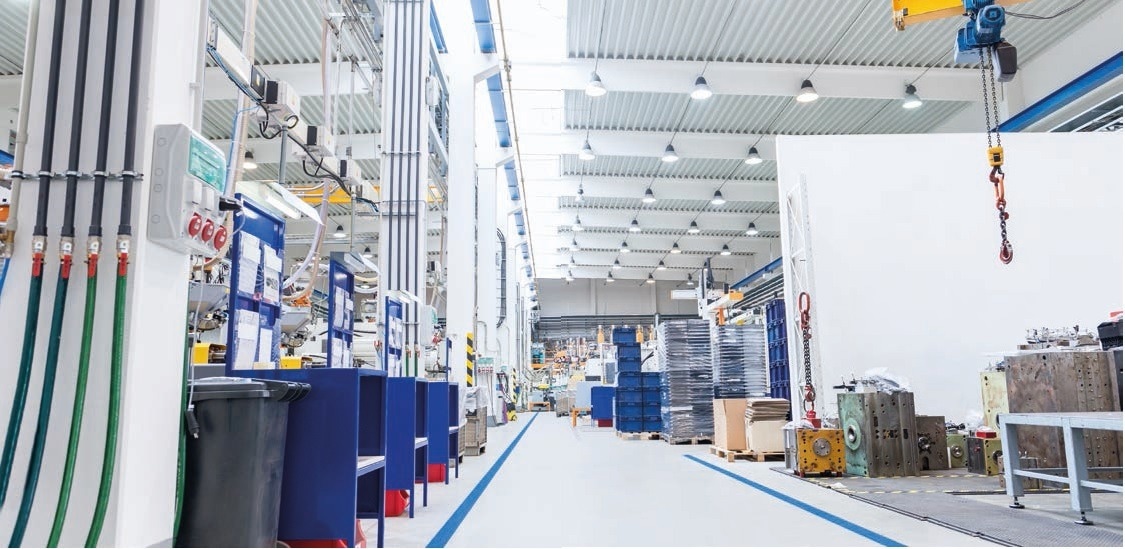Good industrial hygiene should always be employed when handling chemical products. This article will outline some of the precautions that are strongly recommended for the workplace.
Work Area: Separate Chemical Handling
- The storage and consumption of food and drink in the work area should be avoided.
- Smoking in the work area should be avoided.
- Keep the work area clean – pay special attention to work surfaces, floors, and door or cupboard handles. These should be cleaned regularly to prevent chemical contamination.
- Provide appropriate and sufficient workplace ventilation (minimum air exchange 3-5 times per hour). When using respiratory sensitizers, local extraction may be necessary.
- Ensure there are areas for hand and face cleaning, as well as showers and locker rooms that are separate from areas of chemical handling.

Image Credit: Huntsman Advanced Materials
Storage: Avoid Product Interactions
- Huntsman adhesives require storage in their original, unopened packaging or cartridges at the specified temperature found on the packaging. After opening, bulk containers should be re-sealed where possible to avoid chemical loss through evaporation and product degradation caused by humidity or atmospheric interaction.
- Products need to be protected from environmental risks, including heat sources, humidity, strong sunlight, and ignition sources.
- Separate products from other chemicals, such as bases, strong acids, oxidizing agents, and flammable chemicals.
- Methyl methacrylate (MMA) adhesives are highly flammable and must be stored according to requirements for flammable solvents.
Disposal: Respect Regulations
- Unmixed or uncured Huntsman adhesives, along with packaging materials and contaminated containers, require disposal as chemical waste in accordance with local regulations.
- Cured adhesives may be disposed of as plastic waste, but care should be taken when curing bulk material as this can generate excessive heat (exotherm), leading to smoke or even fire. Curing adhesives should be placed in metal containers away from flammable materials and sources of ignition. Sand or water may be added to containers to reduce heat in case of excessive exotherm.
Ventilation: Reduce Exposure
- Air exchange of 3-5 times per hour is recommended for chemical handling.
- Localized air extraction is advised for products that pose specific hazards, such as corrosive vapors, respiratory sensitizers, or irritating dust.
- Curing ovens can pose a particular hazard due to the confined space and increased temperature, which can result in high concentrations of chemical vapors. Therefore, it is essential to ventilate ovens whenever chemical products are used.

This information has been sourced, reviewed and adapted from materials provided by Huntsman Advanced Materials.
For more information on this source, please visit Huntsman Advanced Materials.